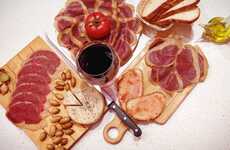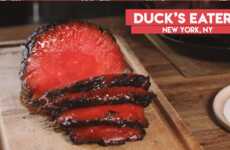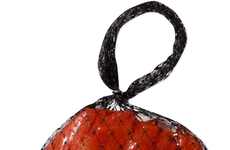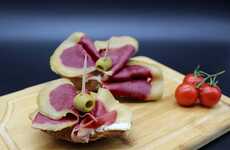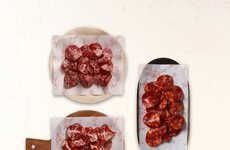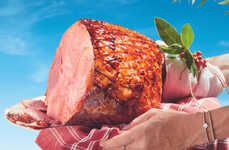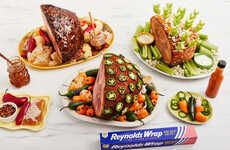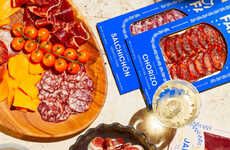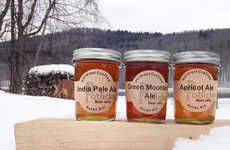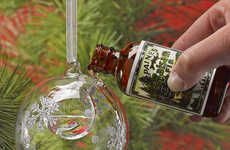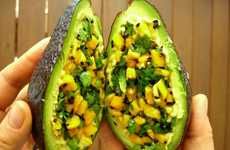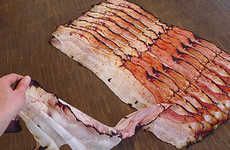
The World's Most Expensive Ham on Sale at Selfridges
Marissa Liu — January 19, 2010 — Luxury
References: news.bbc & bornrich.org
A 7 kg (15 lbs) piece of ham is currently being sold at British retailer Selfridges for the hefty price of $2,940. The world’s most expensive ham comes with its own DNA certificate.
This proof of authenticity boasts that the ham leg comes from a Spanish black Iberico pig raised by pig farmer and ham enthusiast Manuel Maldonaout. The pigs are fed on an exclusive diet of acorns and roots so that the meat has a distinctive flavor and a texture that melts in your mouth.
This proof of authenticity boasts that the ham leg comes from a Spanish black Iberico pig raised by pig farmer and ham enthusiast Manuel Maldonaout. The pigs are fed on an exclusive diet of acorns and roots so that the meat has a distinctive flavor and a texture that melts in your mouth.
Trend Themes
1. Luxury Food - Companies can explore the high-end food industry by introducing premium products made with unique ingredients and flavors to attract affluent customers.
2. Authenticity Guarantees - Incorporating authenticity certificates for rare or unique products can attract customers who value exclusive items, this is a disruptive innovation opportunity as it helps increase customer trust and loyalty.
3. Boutique Agriculture - The demand for unique and exclusive ingredients can create opportunities for boutique farmers or agriculture companies to produce and sell specialized products at premium prices with unique packaging and marketing strategies.
Industry Implications
1. Luxury Retail - High-end retailers can explore the luxury food industry by selling premium products like this expensive ham to high net worth customers.
2. Agriculture - Farmers can develop specialized pig breeds, feeding methods or other unique production methods to drive the growth of boutique agriculture and meet the needs of specific customer segments.
3. Food Certification - Companies can launch businesses that verify, authenticate and test the quality and authenticity of food products, this disruptive opportunity allows companies to provide trustworthy certifications or labels to food items that offer provenance or unique characteristics.
4.1
Score
Popularity
Activity
Freshness


